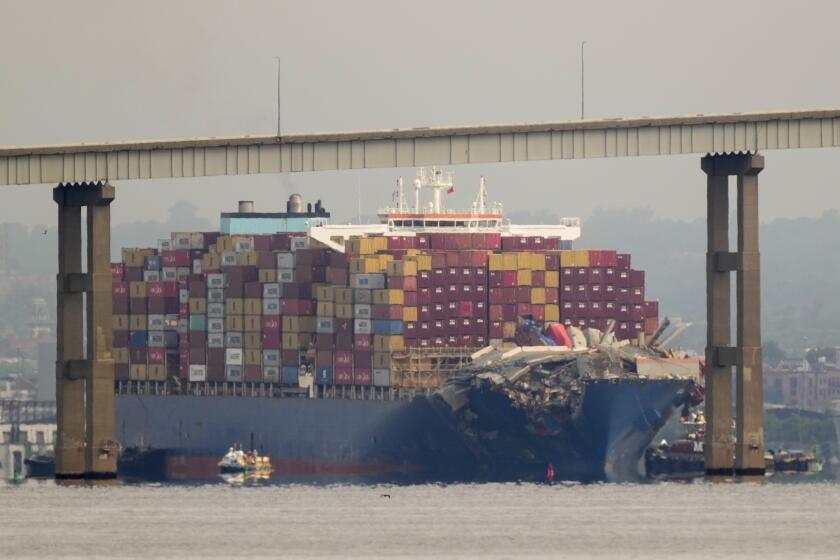Death Toll Reaches 118 in Latest Nepalese Strife
The death toll climbed to at least 118 in two remote Nepalese towns that were attacked by thousands of Maoist rebels, igniting pitched battles with security forces, officials said Friday.
About 3,000 rebels Thursday night stormed the town of Jumla, 225 miles northwest of Katmandu, the capital, and reportedly used villagers as “human shields” during the nightlong gun battle.
At least 95 people, including 55 guerrillas and 37 security personnel, were killed in the fighting, the Defense Ministry said in a statement. A top bureaucrat and two civilians also died.
“Villagers say terrorists had carried away many bodies of their colleagues while fleeing,” the ministry said.
“The rebels might have suffered more casualties, as the search for bodies is continuing in neighboring areas,” another official said.
There was no comment from the rebel group.
In another attack Thursday evening, at least 23 policemen were killed when the rebels struck a police post in Gorkha district, 55 miles northwest of Katmandu.
The assaults followed a national strike called this week by the rebels, who are battling to topple the monarchy and set up a communist republic in the impoverished Himalayan kingdom.
Officials said the rebels also bombed a rural airport tower at Jumla and set fire to buildings housing government offices.
“Many buildings were smoldering when a rescue team of soldiers reached [them],” an official said.
The rebels, inspired by the revolutionary ideas of the late Chinese communist leader Mao Tse-tung, have a strong presence in Jumla and Gorkha.
Top Maoist leaders earlier this week repeated -- as a condition for ending their 6-year-old revolt -- a demand for the formation of a new constituent assembly to draft a fresh constitution that would abolish the monarchy.
They vowed to continue their battle if authorities refused. More than 7,100 people have died in the revolt.
The rebels ordered this week’s three-day strike to protest King Gyanendra’s sacking of the elected government in a dispute over the timing of elections, branding it a “regressive” step.
Gyanendra fired Sher Bahadur Deuba as prime minister last month after Deuba sought to delay the elections because of rebel threats to disrupt them. The king named a strong royalist, former Prime Minister Lokendra Bahadur Chand, to return to the post on an interim basis.
More to Read
Start your day right
Sign up for Essential California for news, features and recommendations from the L.A. Times and beyond in your inbox six days a week.
You may occasionally receive promotional content from the Los Angeles Times.






